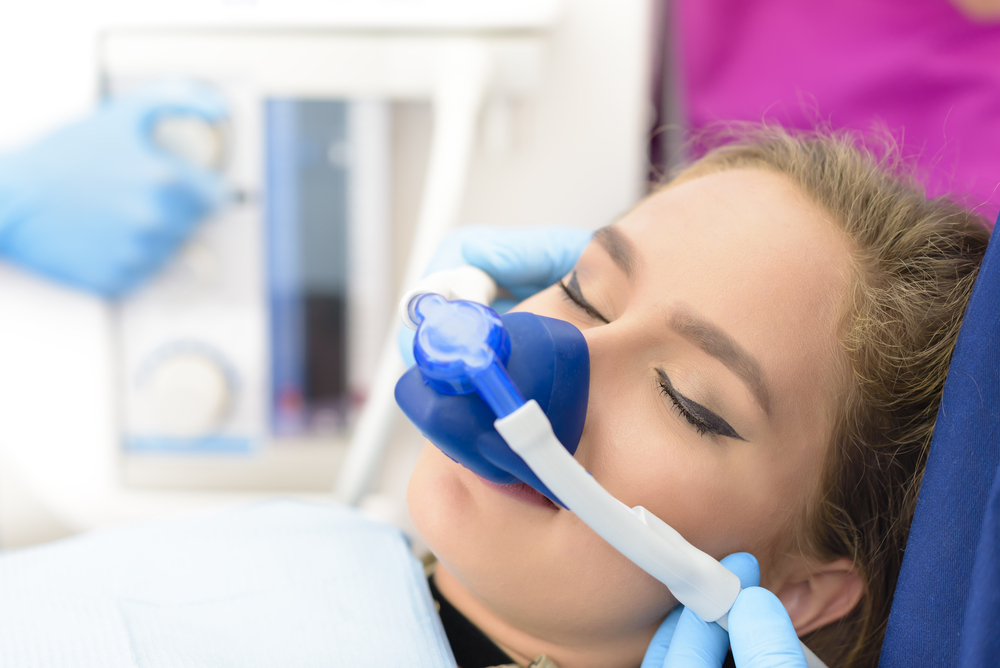Are you one of the millions of people who experience intense fear and anxiety when it comes to dental treatment? You're not alone. The fear of dental treatment, also known as dental phobia, affects a significant number of individuals worldwide. This fear can prevent you from seeking the necessary oral care, leading to more significant dental issues in the long run. However, there are effective strategies and techniques available to help you overcome your fear and receive the dental treatment you need for optimal oral health.
In this comprehensive guide, we will explore the causes of the fear of dental treatment and provide practical tips and coping mechanisms to help you overcome your dental phobia. Whether you experience fear related to needles, pain, or general anxiety, this guide aims to empower you with the knowledge and tools to conquer your fear and take control of your dental health.
Understanding the Fear of Dental Treatment
The fear of dental treatment can manifest in various ways, and it is essential to recognise the symptoms to address them effectively. It's important to note that feeling some anxiety or discomfort before a dental appointment is normal, but when these feelings become overwhelming and prevent you from seeking care, it may indicate dental phobia. Here are some common symptoms associated with the fear of dental treatment:
- Fainting, sweating, nausea, and dizziness: These physical symptoms often occur when faced with the prospect of dental treatment.
- Increased heart rate: The fear of dental treatment can trigger an increased heart rate, making you feel more anxious.
- Increased or decreased blood pressure: Dental phobia can cause a sudden spike or drop in blood pressure, leading to further anxiety.
- Sleep difficulties: Many individuals with dental phobia experience difficulty sleeping before a dental appointment due to anxiety and fear.
- Extreme anxiety or panic: Dental phobia can result in overwhelming feelings of anxiety or panic, making it challenging to undergo dental procedures.
The Causes of Fear of Dental Treatment
Understanding the root causes of your fear can help you address and overcome it effectively. Several factors contribute to the fear of dental treatment, including:
- Previous traumatic experiences: A negative dental experience in the past, such as a painful procedure or insensitive treatment, can contribute to dental phobia.
- Fear of pain: The anticipation of pain during dental procedures is a common fear, especially for individuals who have had painful experiences in the past.
- Fear of needles: Many individuals experience a specific fear of needles, known as belonephobia, which can be triggered by dental injections.
- Loss of control: Being in a vulnerable position with limited control over the situation can trigger fear and anxiety.
- Embarrassment or judgement: Some individuals fear being judged or experiencing embarrassment due to the condition of their teeth, leading to dental phobia.
Coping Mechanisms for Overcoming Fear of Dental Treatment
Overcoming your fear of dental treatment requires patience, persistence, and the willingness to take small steps towards your goal. Here are some effective coping mechanisms to help you conquer your dental phobia:
Seek Support From Understanding Dentists
Finding a dentist who understands and specialises in treating fearful patients can make a significant difference in your dental experience. Dentists who are skilled in managing dental phobias can provide a supportive and compassionate environment, helping to alleviate your fears. Consider asking friends, family members, or your primary healthcare provider for recommendations for dentists who are experienced in treating patients with dental phobia.

Explore Sedation Dentistry
Sedation dentistry is an excellent option for individuals with severe dental phobia. Dentists can use sedatives to help you relax and feel more comfortable during dental procedures. There are different levels of sedation available, ranging from mild sedation to deep sedation or general anaesthesia. Discuss with your dentist which option is best for you based on your level of anxiety and the complexity of the dental treatment.
Practice Relaxation Techniques
Learning and practising relaxation techniques can be highly beneficial in managing dental phobia. Deep breathing exercises, meditation, and visualisation techniques can help calm your mind and body before and during dental appointments. Incorporate these techniques into your daily routine to build resilience and reduce anxiety levels over time.
Communicate With Your Dentist
Open and honest communication with your dentist is crucial in overcoming your fear of dental treatment. Share your fears and concerns with your dentist, allowing them to tailor their approach to ensure your comfort. Establishing a trusting relationship with your dentist can help alleviate anxiety and build confidence in receiving dental care.

Gradual Exposure and Desensitisation
Gradual exposure and desensitisation techniques involve gradually increasing your exposure to dental procedures over time. Start with small, non-invasive procedures and gradually progress to more complex treatments as you become more comfortable. This gradual approach allows you to build confidence and trust in the dental setting, reducing your fear and anxiety.
Cognitive-Behavioral Therapy (CBT)
Cognitive-Behavioral Therapy (CBT) is a widely recognised therapeutic approach that can be effective in treating dental phobia. CBT focuses on identifying and challenging negative thoughts and beliefs associated with dental treatment. By replacing these thoughts with more positive and realistic ones, CBT can help reframe your perception of dental procedures, reducing fear and anxiety.

Conclusion
Overcoming your fear of dental treatment is possible with the right strategies and support. By understanding the causes of your fear and implementing effective coping mechanisms, you can regain control of your dental health and receive the necessary care without unnecessary anxiety.
Remember, taking small steps towards overcoming your fear is a significant achievement, and with time, patience, and support (and maybe sleep dentistry), you can conquer your dental phobia and maintain optimal oral health. Don't let fear hold you back – take the first step towards a healthier smile today!
Note: The information provided in this article is for educational purposes only and should not replace professional dental advice. Consult with your Mulgrave Dental Group dentist for personalised recommendations and treatment options.
Smile Makeover Client
Your Healthier Smile Awaits
Whether you're looking to improve your dental health or enhance your smile, we're here to help. Book an appointment with Mulgrave Dental Group today!
Book Now


